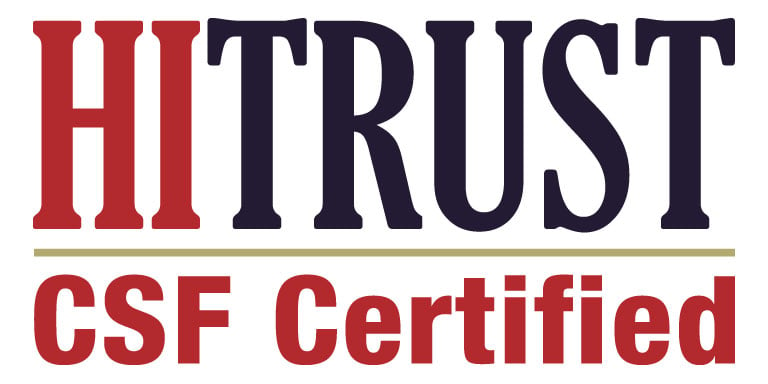
As we’re getting the ball rolling with our new blog, we agreed that there couldn’t be a better way to kick things off than with an interview with GNS Healthcare CEO, Chairman, and co-founder Colin Hill. So when I had the chance to sit down for a discussion with Colin, what I wanted to know was what was the vision that convinced him to found GNS seventeen years ago and does that mission still hold true today. What I found is that he has been driven by one seemingly simple question: What needs to be discovered and uncovered to stop disease and its progression? He’s had a clear vision since 2000 that the answer to that problem rests in no small part on the promise of computational physics, data science, machine learning, and the genomics and clinical data that has been emerging on a tremendous scale over the past decade.
“My background is in non-equilibrium statistical physics and complex systems- the study of, among other things, how molecules in a certain system, like silver or glass, react with each other. If these systems are driven out of equilibrium, the system behaves in unpredictable ways, ways that we don’t have theories such as entropy for,” said Hill. “My question was and still is, if we can understand these out of equilibrium systems, then how can we apply that approach and type of thinking to a living organism?”
GNS Started With A Big Idea and a Mission
As Hill explains it, when he and his co-founder Iya Khalil founded GNS, it was a very exciting time. The human genome project was nearing completion, offering never before available insights. At the same time Moore’s Law was continuing to hold true in computer science, meaning that computers were becoming tremendously powerful and were nearing the point where it was possible to leverage the tools of theoretical physics to figure out how genes and cells react to give rise to disease, or how a certain drug could perform very well for certain people, but not others. “I was determined to prove that this ‘complex systems’ approach could be used to look at the human genome and define how models could be built from data that would help us understand what’s really going on in a biological system in health and disease.”
Of course that’s not to say that it was all smooth sailing. In many ways, Hill and GNS were well ahead of their time. Computers and servers were tortoises compared to today and they often broke down, models had to be made by hand and algorithms manually entered into ‘made from scratch’ software, the cloud didn’t exist, the human genome project was not yet complete and it was slow and difficult to analyze large amounts of data. “Even though it was early and we knew it,” said Hill, “our mission was clear: turn data into computer models of disease, gene by gene, in order to discover the real combination of genes and other factors driving the progression of diseases, such as cancer, diabetes, and Alzheimer’s and determining which individual patients will respond to which drug.”
That mission still holds true today and is a vital part of who GNS is. However, as the amount of data available has broadened so have GNS’ capabilities. “With our industry-unique causal machine learning and simulation platform combined with the data science expertise we have developed and expanded over the years, why limit these models to just drugs?” asks Hill. “Why not medical procedures and medical devices and care management programs?” Why not populations and subpopulations in the real world beyond clinical trials? Why not the provision of care and the healthcare systems itself?” With vast new data streams becoming available, like electronic medical record (EMR) data, longitudinal healthcare data, demographic data and even lifestyle and consumer purchasing data, GNS is now focused on helping customers not only improve outcomes, but also lower the cost of care.
“What we do is even more relevant now,” says Hill. “We are helping our partners deliver on the Triple Aim of solving the matching problem, improving outcomes and slowing disease progression. Our underlying technology allows us to help health plans, care providers, foundations and biopharmaceutical companies determine the optimal approach to better treating patient.”
It’s not Match.com, but Healthcare Certainly has a Matching Problem
When I asked Colin what he wanted GNS to be known for, he answered, “Ultimately, we want to be known for solving the healthcare matching problem.” This problem, which costs the healthcare system billions and billions of dollars each year, exists because until now there has been no way to match the individual to the precise intervention that is most likely to work for them, so an enormous portion of healthcare interventions are ineffectual. “There simply has been no way to deliver the kind of insights at the precision medicine level that we can now deliver and we are proud to be a leading business in this space,” says Hill. “We’ve been working for more than a decade to turn this dream into a reality and the market is finally ready for the solutions we’ve been refining and delivering for more than a decade.” As Hill explains, “We don’t make drugs or deliver care programs…. we’re not doctors. We’re the intelligence layer that better matches these interventions to individual patients to improve health outcomes and lower the total cost of care.”
GNS does this by crunching massive sets of clinical, genomic and other data to deliver insights of which drug or medical procedure will deliver the best outcomes for an individual. In fact, GNS is one of the first companies to prove that causal machine learning can discover the right biomarkers and their downstream disease consequences as well as accelerate the development of highly precise, targeted therapies matched to individual patients. These discoveries are game-changers for precision medicine and will soon make population health a thing of the past
“In some ways, I believe we are making the impossible possible,” says Hill.
What’s Next For GNS Healthcare
At the end of our conversation I asked Colin what makes him jump out of bed in the morning after seventeen years. He replied that he wants the company to continue delivering tangible ROI and real data on key marketplace needs, including in areas like advanced illness and palliative care and personalized cancer care. He wants to prove that healthcare plans and providers can improve care and reduce adverse events and hospital days through the better discovery of members in their last days of life. He wants to use combinations of genomics and clinical data to discover which out of trillions of possible combination cancer therapies will be the silver bullet for an individual cancer patient. Hill believes that the GNS approach to causal machine learning is the key to making this happen and to seeing into knowledge blind spots.
“I am driven by the desire to make a big impact on patients and the world,” says Hill. “I am more excited about our work now than when we began. I’m not interested in being known as a pioneer in this space, I want the company to be known for making a difference.
Stick with us on this blog as we tell the story of how GNS Healthcare is doing just that.

